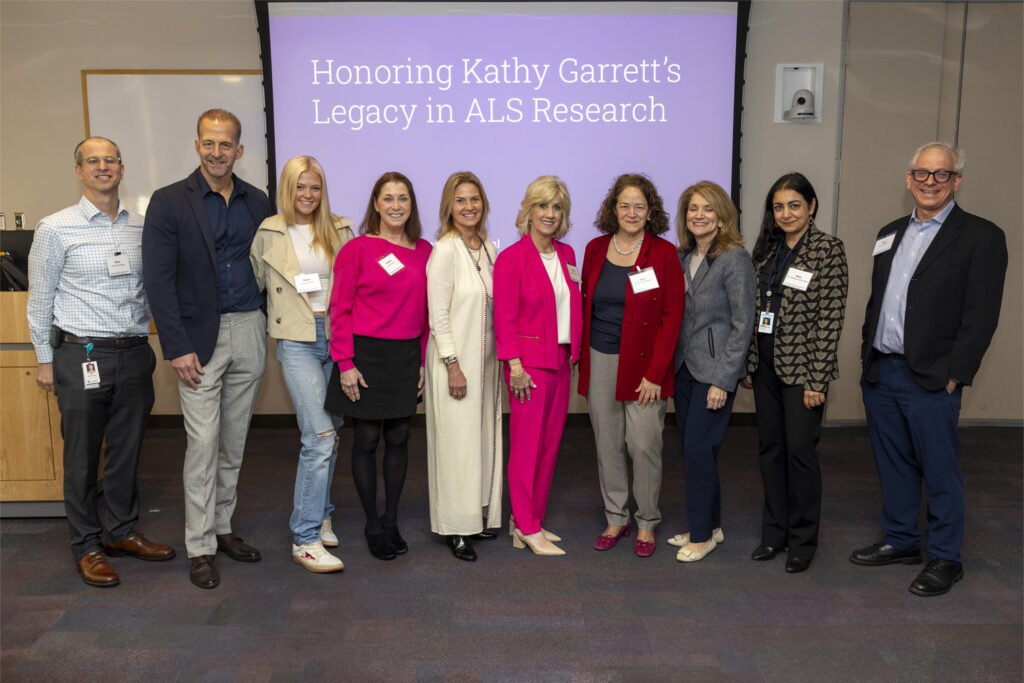This story was first published here.
Cardiovascular disease is the number one cause of death worldwide, and 90% of these cases are due to defects in the vascular system. In the majority of patients, atherosclerosis — the buildup of fats, cholesterol and other substances on the artery walls, also called “plaque” — takes decades to develop. But in a tiny handful of cases caused by a specific genetic defect, this process is greatly accelerated.
Massachusetts General Hospital physician-scientist Patricia L. Musolino, MD, PhD, is studying these rare conditions to develop treatments not only for the patients who have them but also to gain insight into the broader underlying causes of cardiovascular disease.
“We like to say that we are transforming drug development to bring life-changing treatments for those suffering from vascular diseases,” she says. “We do this with the goal of helping one patient at a time, but with all patients in mind.”
Dr. Musolino treats patients in the Neuroscience Intensive Care Unit and the Emergency Department at Mass General and is the co-director of the Pediatric Stroke and Cerebrovascular Service. One area of focus for her research is to translate discoveries about these rare genetic disorders into approaches that may eventually lead to gene therapy treatments. Leveraging her experience as a key investigator in the clinical trial that led to the first FDA-approved gene therapy for a cerebral disease, she is now leading a large preclinical and clinical research collaboration to bring promising advanced gene therapy technologies into the clinic.
Disease Impacts the Very Young
Much of Dr. Musolino’s research is dedicated to a cerebrovascular disease — a term used to describe conditions that impact blood flow to the brain — called multisystemic smooth muscle dysfunction syndrome (MSMDS). This is an extremely rare condition, recognized only since 2010 and believed to affect about 10 patients per year. Children born with this condition begin experiencing strokes between the ages of 1 and 10 and aortic dissections between the ages of 10 and 20. Most live only into their 20s or early 30s.
“This is a disease of the smooth muscle cells that line the arteries,” Dr. Musolino explains. “When we do an angiogram on a five-year-old child with MSMDS, their vessels are so narrow that their appearance would be uncommon even in an 80-year-old person,” she adds.
Research Yields Promising Results
Dr. Musolino and collaborators developed mouse models of the disease and created a cell line that has allowed them to optimize gene editing and study potential new approaches to correcting this condition. “Our therapeutic strategy is to normalize the function of these cells to restore vessel health and ultimately prevent tissue injury,” Dr. Musolino says.
The recent focus has been on advancing a gene therapy to alleviate these effects. Examination of the vessels in the mouse models has shown that the therapy is acting as expected: the smooth muscle cells in the vascular system function normally, the vessels in the brain are able to contract and neurodegeneration is rescued. The team is conducting more research to help make the therapy accessible to patients via clinical trials.
Developing New Technologies
The leading work on MSMDS has brought together a cutting-edge expert team that in record time has advanced research of cerebrovascular disease. But the work is not done. “Right now, there is a huge unmet need in developing treatments for patients, and the severity of their disease justifies the risk of trying new technologies,” Dr. Musolino says. “Developing these therapies will not only alleviate the suffering of kids and families but also enable technologies never before used in humans to treat the most common forms of vascular disorders — the number one cause of death in the world. This justifies using as many resources as needed.”
“Research on rare diseases like these,” she adds, “is only possible by working together with patient families, and we are very grateful to those who are willing to share their lives with us.”

This story is just one example of the groundbreaking efforts taking place at Mass General, home to the largest hospital-based research enterprise in the U.S. — the Mass General Research Institute. The Research Institute encompasses and provides support to thousands of scientists, hundreds of laboratories, and helps to guide, connect and promote this unrivaled community of investigators as they advance the future of medicine, from the bench to the bedside, to the community and world.







